




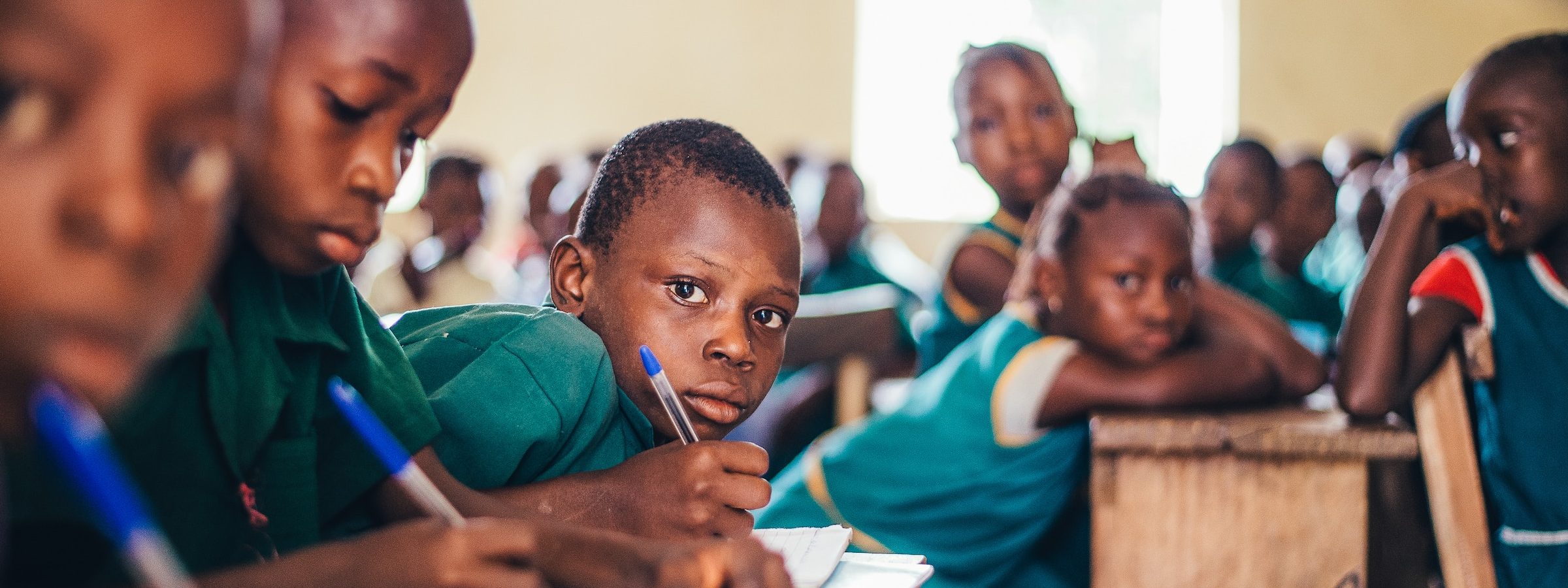
The VIA Community newsletter has always been focusing on the greatest achievements of the partners who make the VIA programme a reality. As the Acceleration Phase of VIA has come to an end, the VIA Community wants to celebrate the accomplishments of the implementing partners who dedicated time and resources to make the vision for 2022/2023 of the Corporate Foundations of TotalEnergies and Michelin a reality: offering a structured road safety education training to as many students as possible in the focus countries.
This edition of VIA Community focuses on the Acceleration Phase countries: Brazil, India, Kenya, Mexico, South Africa, and Uganda.
Michael Chippendale
VIA Project Manager
Global Road Safety Partnership

With the instrumental support and collaboration of Junior Achievement (JA) Brazil and the Corporate Foundations of TotalEnergies and Michelin, the VIA programme was introduced and implemented in the Brazilian states of Minas Gerais, Goiás, Bahia, São Paulo, and Rio de Janeiro throughout May and October of 2022.
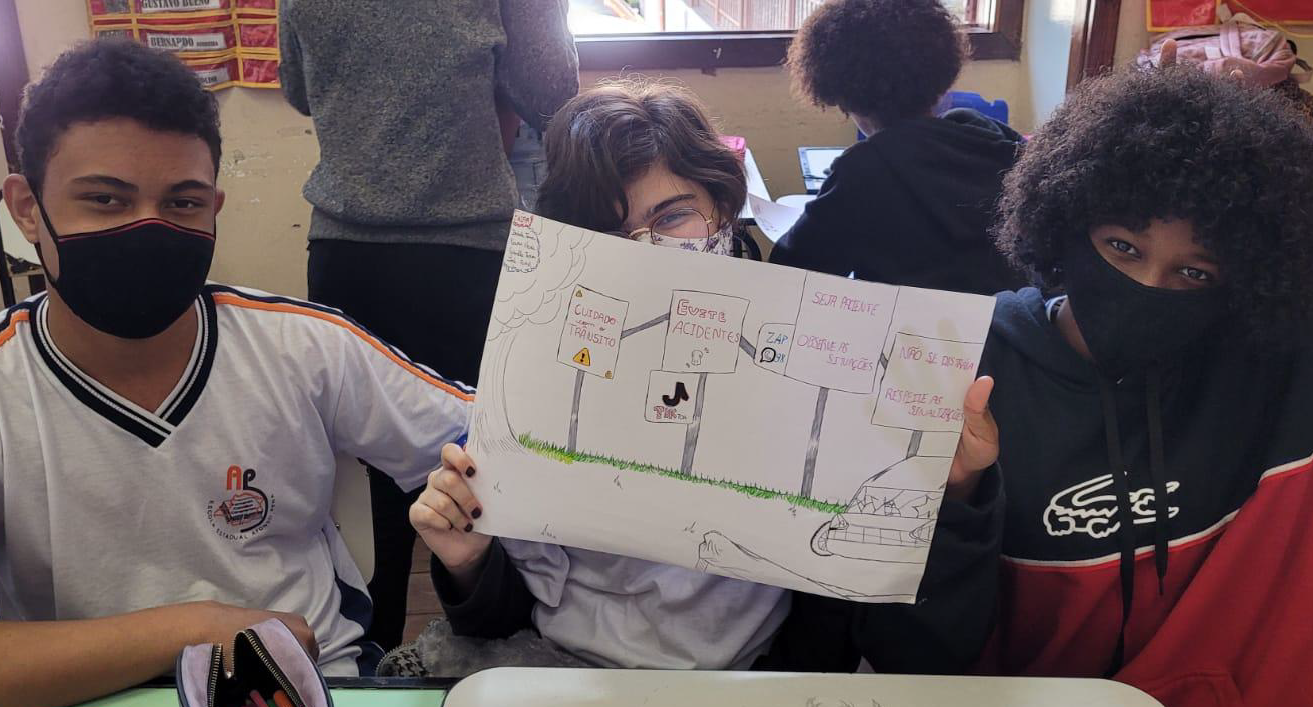
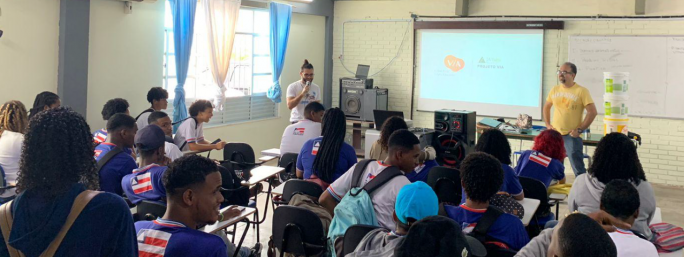
With the instrumental support and collaboration of Junior Achievement (JA) Brazil and the Corporate Foundations of TotalEnergies and Michelin, the VIA programme was introduced and implemented in the Brazilian states of Minas Gerais, Goiás, Bahia, São Paulo, and Rio de Janeiro throughout May and October of 2022.
Additionally, VIA was made possible in Brazil with the aid of local authorities, including the Ministries of Education in Rio de Janeiro and São Paulo and the Ministry of Mobility in Goiânia. VIA’s on-the-ground implementation was carried out by JA Brazil’s staff, volunteers from JA’s network of partnerships and in-school educators.
The programme reached a total of 54 schools, more than 10,000 students and gained positive traction in online news outlets across Brazil. VIA constituted JA Brazil’s second largest project of 2022.
“I very much liked this class that offered new experiences and learnings. I learned many new things and I remembered a few that I already knew. With the games and videos, I understood the importance of traffic laws and that rules exist to be respected,” explained Ana Vitória, a ninth-grade student from Goiás.
“We offer the students an innovative approach of raising awareness about risks on the road through active, emotional and creative methods with the goal of reducing incidents among young people,” commented JA Brazil’s Director of Operations Brenda Santos.
India was one of the three original pilot countries for VIA back in 2019, so it was a logical step to build on the great work done thus far when the decision of where to invest for acceleration was taken. As expected, it was a success.
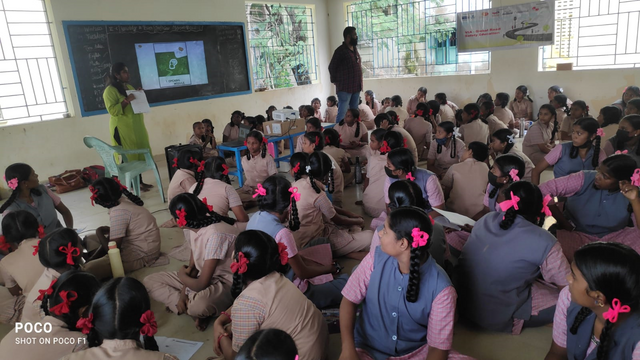
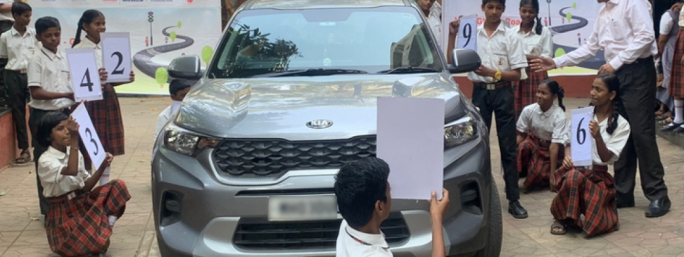
India was one of the three original pilot countries for VIA back in 2019, so it was a logical step to build on the great work done thus far when the decision of where to invest for acceleration was taken. As expected, it was a success.
United Way Mumbai (UWM), our local implementing partner, excelled despite the difficulties that can occur in a setting as complex as India. Their implementation focused on four cities, Mumbai, Chennai, Pune and Bengaluru, engaging a total of 76 schools and over 16,300 students. To reach these impressive numbers, UWM liaised with government, the education department and school management in the different cities building relationships that will last beyond the programme and that will play an important role in the sustainability of VIA in India.
The programme in India was structured around the first three VIA modules and the pre- and post-assessments, which provided data on the road safety knowledge and understanding the progression of students who received the training. Trainings were dynamic and playful, in line with the VIA pedagogical model. UWM particularly addressed the issue of the blind spot, organizing physical demonstrations in school courtyards and parking spaces.
All the students who participated in the programme were awarded with a certificate of participation aimed to encourage and motivate students to adopt safer behaviours on the road and spread awareness on road safety among their peers and communities.
“We are very proud of the work done by UWM in building a safer future for so many children and their families. Road safety is an issue that cannot be tackled alone, but together we can truly build a better and safer future,” said Michael Chippendale, VIA’s Global Manager.
VIA’s implementation in Kenya was able to engage a total of 32,342 students in 87 schools in the capital city of Nairobi, and the Nakuru and Murang’a counties. Altogether, 151 school patrons took part in stakeholder meetings and up to 4,944 members of the local communities participated in road safety awareness activities.
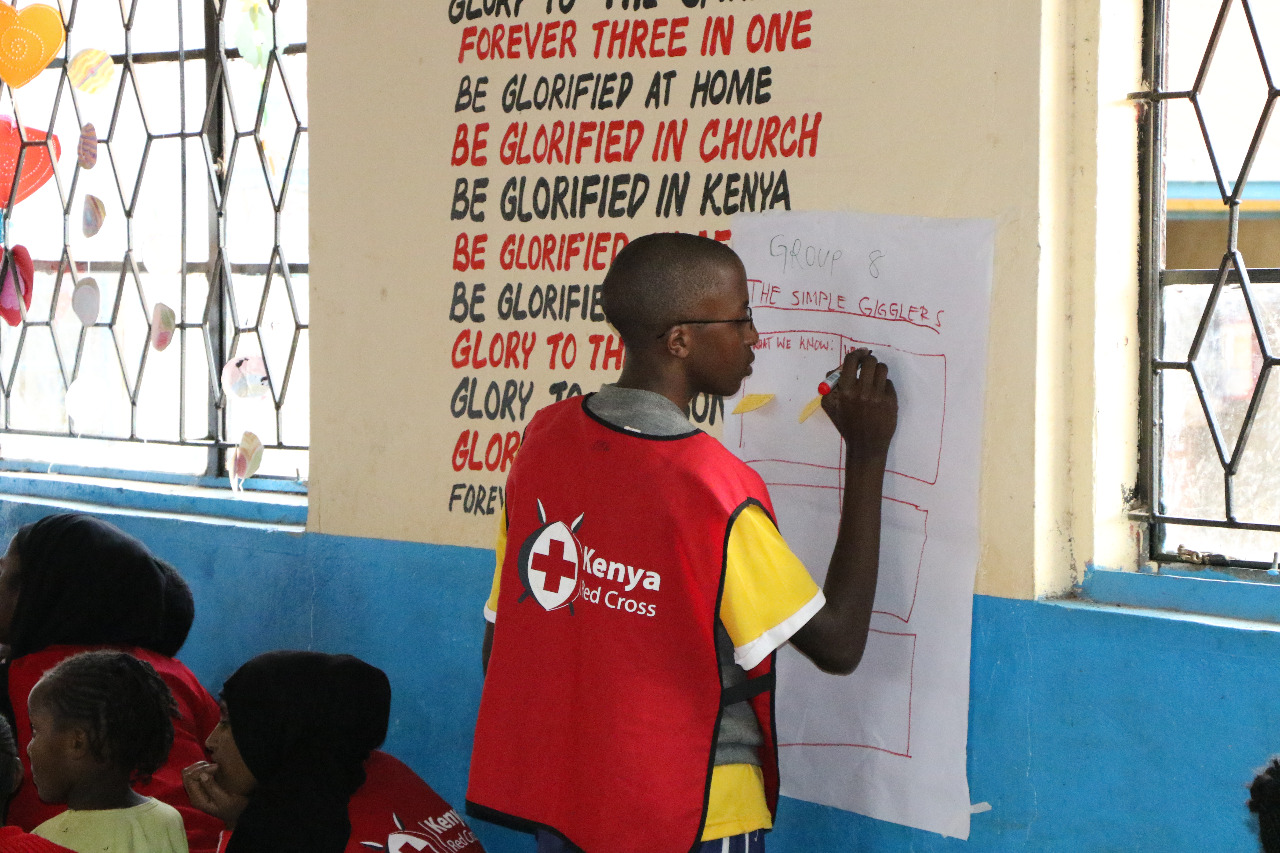
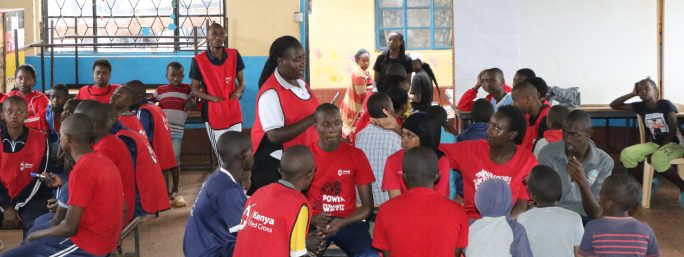
In 2020, the VIA programme was launched in Kenya with the Kenya Red Cross (KRC) as implementing partner.
Due to external circumstances during the initial stages of the implementation, such as COVID-19 restrictions and national exams for different education levels, the KRC was able to push through by digitally engaging students and trainers. As these situations improved, on-site implementation began to gain significant momentum.
VIA’s implementation in Kenya was able to engage a total of 32,342 students in 87 schools in the capital city of Nairobi, and the Nakuru and Murang’a counties. Altogether, 151 school patrons took part in stakeholder meetings and up to 4,944 members of the local communities participated in road safety awareness activities. In addition, the KRC organized mental health and psychosocial support awareness and first aid sensitization for matatu drivers, which reached a total of 210 drivers and coordinators.
Games, group discussions, presentations, surveys, games, art, and videos were all instrumental in the delivery of the VIA programme. Further, to complement the execution of the programme, VIA facilitators trained two sign language interpreters to provide support whenever needed.
During Phase I and II of the implementation, the students prepared road safety-related art pieces—such as poetry, songs, graffiti, and drawings—for their participation in VIA’s Art for Road Safety Challenge. They were also able to demonstrate their newly acquired road safety knowledge through theoretical and practical activities.
“The overall aim of the programme is to reduce road traffic-created deaths and injuries by providing road safety education among school grade children and adolescents between 10 to 18 years. This ensures that they are living healthy lives and can access quality education to improve their lives and those of their communities,” said Cecilia Mwangi, the KRC’s National Students Programme Officer.
A total of 100 Mexican schools opened their playgrounds and classrooms to the VIA – Road Safety Education for the Next Generation programme from September 2022 to March 2023. The public schools were selected by the Mexican Red Cross (MRC), VIA’s implementing partner in Mexico, with support from the country’s Secretariat of Public Education.
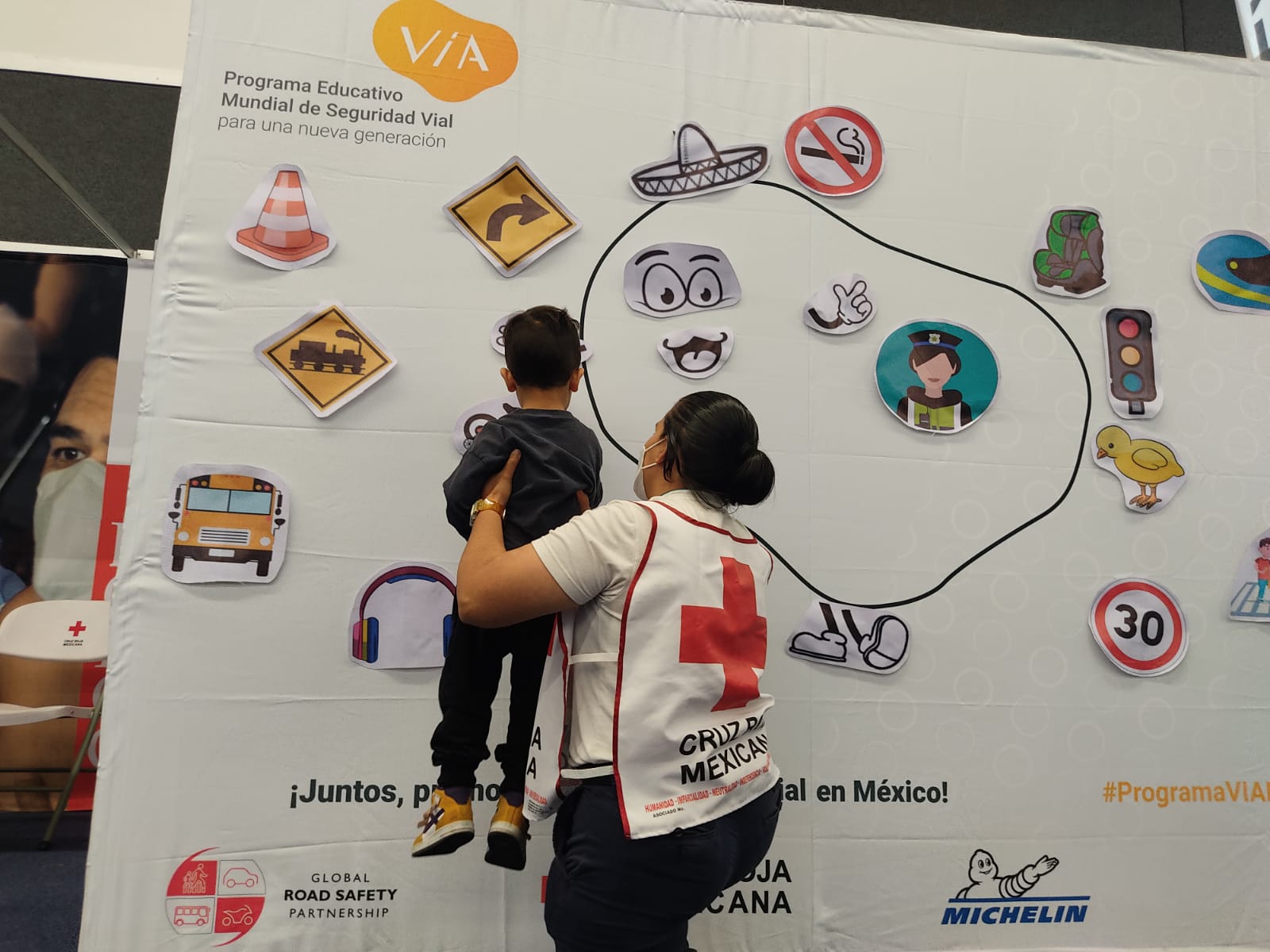
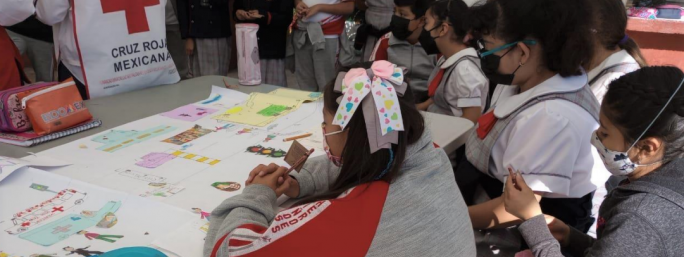
A total of 100 Mexican schools opened their playgrounds and classrooms to the VIA – Road Safety Education for the Next Generation programme from September 2022 to March 2023. The public schools were selected by the Mexican Red Cross (MRC), VIA’s implementing partner in Mexico, with support from the country’s Secretariat of Public Education. TotalEnergies Mexico and Michelin Mexico’s staff continuously collaborated and actively engaged with the MRC in preparation of the programme, as well as during its implementation.
VIA was carried out in schools in Jalisco, Nuevo Leon, Mexico City and the State of Mexico, and was able to successfully engage with 15,119 students between the ages of 10 to 12 years old. Through the programme’s structured methodology and modular approach, children learned how to respect road safety guidelines, recognize high-risk behaviours on streets, and develop simple and creative action plans that can maximize their safety during their day-to-day routines.
“With the valuable support of TotalEnergies, Michelin, and GRSP, we ended up reaching a total of 100 public schools and over 15,000 students in the country. The children were able to be creative, step outside the box, and explore road safety through comprehensive and innovative methods. We are delighted to have brought the heart-engaging VIA programme to multiple parts of Mexico,” explained the MRC’s National Coordinator for Injury Prevention, Pitichi Rivadeneyra López.
Moreover, VIA was presented to the general public in Guadalajara, Jalisco, during the 2022 Guadalajara International Book Fair held in November – one of the largest literature-centered events in the Americas. Both adults and children were able to learn about road safety education by engaging hands-on in a few of the modules with guidance from the MRC’s staff.
Road crash death and injuries are important public health issues affecting thousands of lives every year in South Africa, with a particular burden carried by children, young adults, and pedestrians—some of the most vulnerable road users.
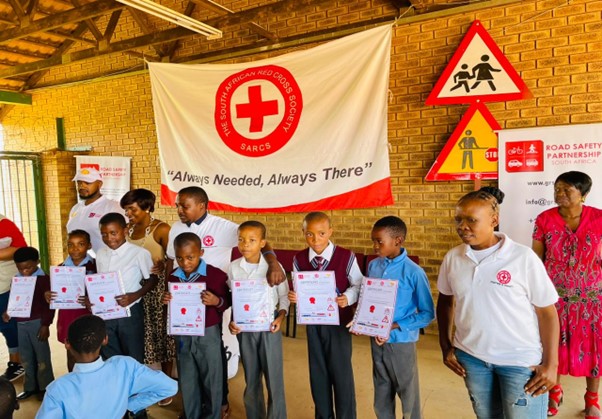
Road crash death and injuries are important public health issues affecting thousands of lives every year in South Africa, with a particular burden carried by children, young adults, and pedestrians—some of the most vulnerable road users. To contribute to reducing these statistics and build a safer future, the Acceleration Phase of the VIA Programme was implemented in South Africa.
In partnership with the South African Road Safety Partnership (SARSP) and the South Africa Red Cross Society (SARCS), VIA was implemented in the Gauteng Province—specifically in the provinces of West Rand, City of Tshwane, City of Johannesburg, Ekurhuleni, and Sediberg.
VIA engaged 50 schools in areas where crashes are regularly reported, training over 20,000 students on the four modules of the programme. The educators, often Red Cross Youth Volunteers, were trained on the VIA methodology and pedagogical approach as well as on First Aid by the SARCS. The trainings were conducted in English to the request of the students, whilst discussions and activities occurred in local languages—showing the great intrinsic ability of the programme to be tailored to local needs.
“The implementation in South Africa was a clear success, from the joint partnership with both SARSP and SARCS, and for the great relations built with the TotalEnergies and Michelin representatives in-country,” said Michael Chippendale, VIA Global Manager. “We hope this engagement will continue in the future as there is more that can be done to support the sustainable reduction of road traffic deaths and injury in South Africa.”
VIA in Uganda was implemented by Safe Way Right Way Uganda (SWRW) from March 2022 to February 2023. Through the programme, SWRW sought to address road safety challenges faced by vulnerable young people in Uganda and specifically targeted school–going children in the Albertine region and Kampala city.
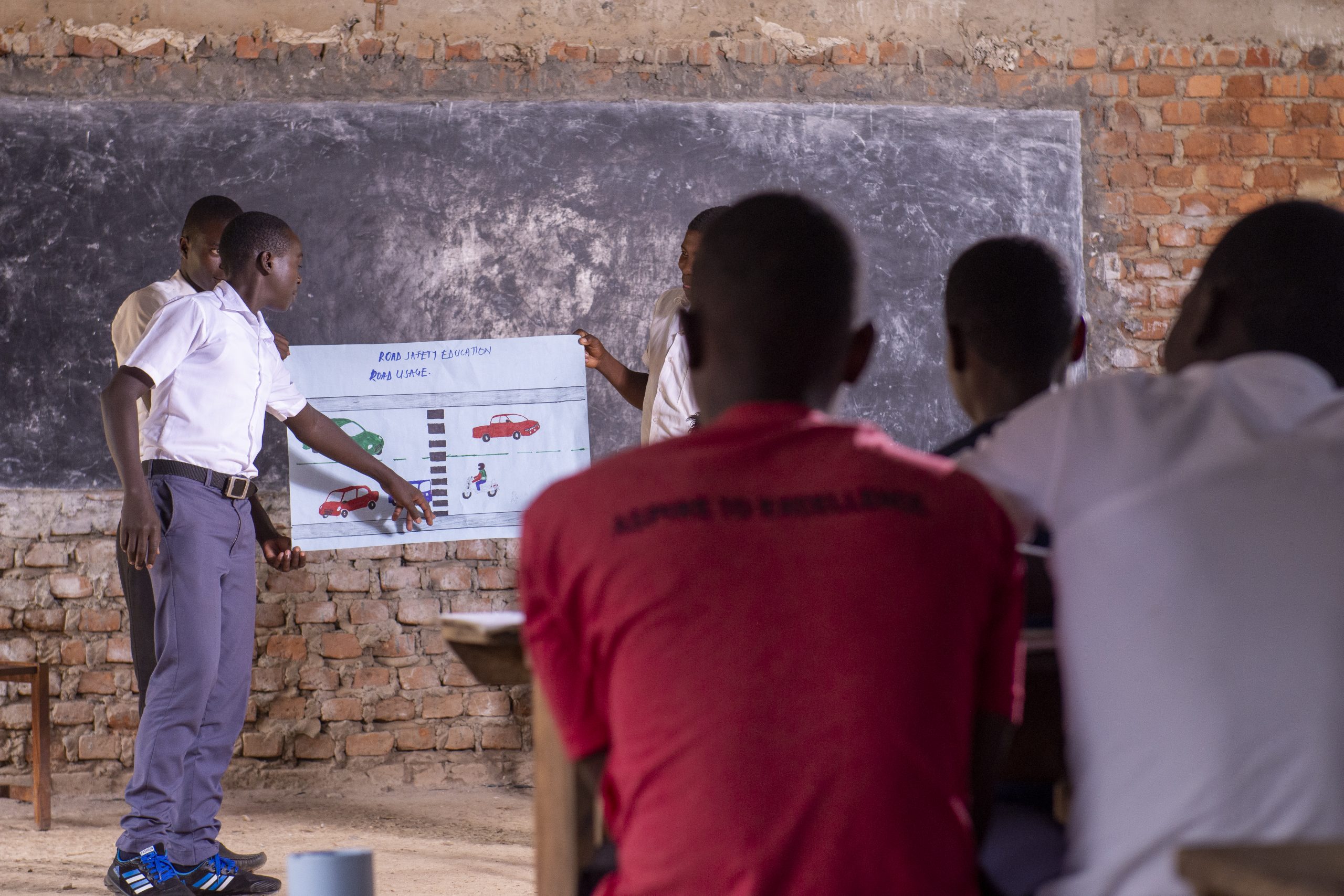
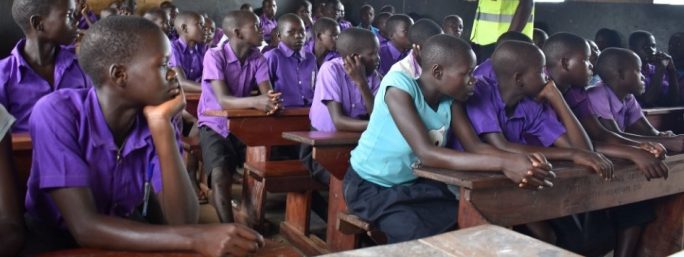
VIA in Uganda was implemented by Safe Way Right Way Uganda (SWRW) from March 2022 to February 2023 with funding from the Corporate Foundations of TotalEnergies and Michelin. Through the programme, SWRW sought to address road safety challenges faced by vulnerable young people in Uganda and specifically targeted school-going children in the Albertine region and Kampala city.
The geographical scope of the project was informed by the road traffic trends: Kampala has the highest number of fatalities in road crashes and the Albertine region has registered tremendous growth in traffic because of oil and gas developments in the region. It in fact ranks seventh, out of the 24 regions outside Kampala, for the number of crashes and fatalities recorded annually.
The project had three key objectives: (i) to establish the VIA programme in the selected schools; (ii) to implement the VIA Programme by conducting surveys and implementing the three modules; (iii) to conduct communications and external relations through media engagements, meetings with stakeholders, and in school events.
At project inception, SWRW conducted a thorough stakeholder mapping exercise to identify key stakeholders to engage in the project. SWRW worked with the identified stakeholders at national, district and community levels to empower the teachers and school-going children on road safety.
In addition to capacity building and awareness raising activities, SWRW contracted Road Safety engineers to conduct Star Rating Assessments of roads in Buliisa district and Kampala city. The iRAP assessments conducted in Kampala and Buliisa provided a rich insight into the infrastructure challenges faced by the children and provided SWRW an opportunity for evidence-based advocacy to upgrade and improve the roads around schools. A report of the findings in Kampala detailing the specific road safety issues was presented to the engineering department and it is expected that it will be factored in the infrastructure development plans for the city to reduce these risks for road users.
Several achievements were realized under the project. Firstly, the project was introduced to 138 schools in Nwoya, Pakwach, Hoima, Kikuube, Buliisa, and Kampala districts. The concept of teaching children about road safety was relatively new to these schools and they indicated that it was a good and timely initiative because road safety is a huge concern in the communities. Secondly, 269 teachers were trained as VIA educators and they in turn sensitized 27,391 students on road safety using the VIA manual.
During and after the implementation of the VIA programme, there has been an increase in the number of children engaging the road environment in a safer way, and it was reported that road safety topics dominated the end of third term exams. It suffices to say, the children were well prepared to answer the questions.